Breathing is a fundamental activity that all living beings perform at all times till they are alive. It comes naturally to us and we do not need to learn or practice it. And since it is an inherent part of our daily life, most of us don’t pay attention to the way we breathe.
You have two passages to your lungs. They are your mouth and nose. Most healthy individuals typically breathe in and out through their noses. When a person inhales the air through their nose, the nasal passage makes it moist and warm. This reduces irritation in the airway and keeps it healthy.
However, instead of breathing through their nose, many people often inhale the air exclusively through their mouths. This is known as mouth breathing.
Now, occasional mouth breathing during certain conditions, like when you have a cold or any other sickness, is not a reason for worry. However, if you always breathe through your mouth, you might need to visit a doctor and get yourself checked.
If you or your loved one always has the issue of chronic mouth breathing, this blog post is for you. In this article, we will talk about mouth breathing, its causes, and its long-term impacts on your health. Read on!
What Are the Main Causes of Mouth Breathing?
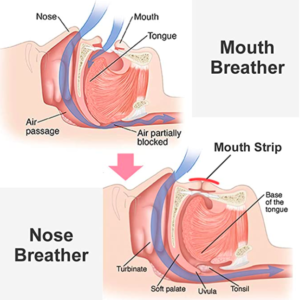
Mouth breathing usually happens due to an underlying condition that blocks a person’s nasal airway. This prevents the steady passage of air through their nose and they are compelled to breathe through their mouth.
Here are some of the major causes of mouth breathing.
Sleep apnea might lead to mouth breathing

Sleep apnea is a medical condition in which the patient cannot breathe properly while they are sleeping. The condition causes a blockage in the patient’s nasal cavity and thus, they are forced to breathe through their mouth.
Furthermore, certain allergies can also be a reason for chronic mouth breathing.
Enlarged tonsils can also cause mouth breathing
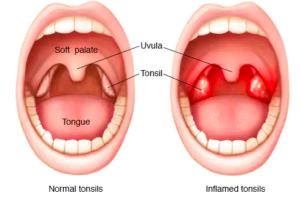
Tonsils are a pair of soft tissues located at each side of the rear of your throat. Inflammation or swelling of tonsils is known as Tonsillitis.
Slight swelling of tonsils doesn’t affect your ability to breathe through your nose. However, if your tonsils get extremely enlarged, they can cause respiratory tract infections like the common cold, sore throat, bacterial infection, etc.
And these infections cause congestion in your nasal cavity and block your airways. And so, breathing through your nose becomes difficult.
Nasal polyps and mouth breathing

Nasal polyps are basically benign growth of tissues on the lining of your nose. They cause nasal congestion, thereby obstructing the free flow of air through your nose. So, you are forced to breathe through your mouth.
Crossbite and underbite can lead to mouth breathing
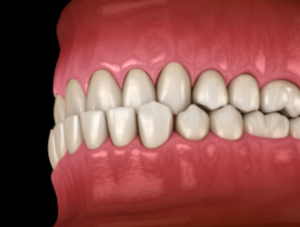
According to an Orthodontist If you have the issue of misaligned teeth, like crossbite and underbite, you would tend to breathe through your mouth the chances are that an Orthodontic treatment will be required later to correct the same.
Moreover, facial deformities and the shape and size of your jaw and nose also affect the way you breathe.
Chronic stress and anxiety can cause mouth breathing

Although it sounds unlikely, stress and anxiety can also cause the issue of mouth breathing. When you are highly stressed or anxious, your nervous system gets activated. It increases your heart palpitations and makes you take rapid and shallow breaths from your mouth.
Many pediatric dentists have observed that kids who have a history of dealing with stress may develop a habit of inhaling and exhaling air through their mouths which might need pediatric orthodontic treatment later. And so, they will need constant practice to start breathing from their nose again.
How to Know if You Have the Issue Of Mouth Breathing?

Like we said at the beginning of this piece, most of us don’t analyze how we breathe. It often becomes difficult to find out that you breathe from your mouth instead of your nose. To help you out, we have created a list of common symptoms that you may have if you breathe through your mouth.
Mouth Breathing Symptoms In Adults
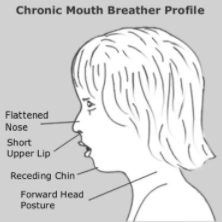
- Snoring
- Dry mouth and throat
- Feeling of irritation after waking up
- Brain fog
- Tiredness and fatigue
- Hoarse voice
Mouth Breathing Symptoms In Kids
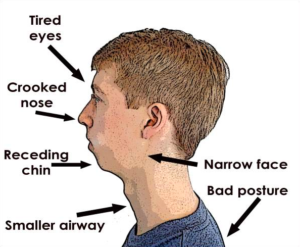
- Increased crying episodes during nights
- Difficulty in concentrating at school and studies
- Increased irritability
- Sleepiness during the day
- Dry mouth and cracked lips
- Slower growth rate
- Enlarged tonsils
- Speech problems or difficulty in swallowing
Long-Term Impacts of Mouth Breathing
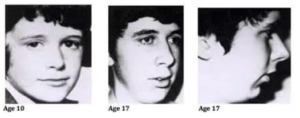
Chronic mouth breathing can cause serious long-term health problems. It can cause gum diseases, bad breath, and can even elevate the symptoms of other diseases like asthma, etc.
Constant mouth breathing can cause long-term health impacts in children, too. Orthodontists have also observed that If a child breathes through their mouth all the time, it can lead to problems like facial deformities, crooked teeth, brain fog, and poor growth.
Here are some of the major impacts of mouth breathing.
Mouth breathing can lead to dry mouth and bad breath
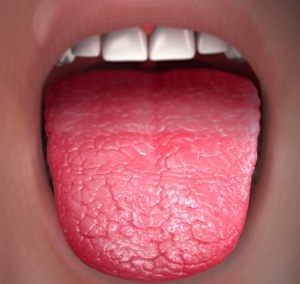
Many dentists have observed that constant mouth breathing can make your mouth extremely dry and uncomfortable. It can also make it difficult to swallow.
Normally, your saliva washes away all the bacteria in your mouth. However, when you always inhale and exhale air through your mouth, your saliva becomes dry and it cannot remove the oral bacteria efficiently. This can lead to oral problems like tooth decay, bad breath, bleeding gums, and cavities.
Mouth breathing can lead to poor sleep

Breathing through your mouth makes your throat and oral cavity dry. This in turn makes it difficult for you to have a good night’s rest. Lack of oxygen can also cause sudden nighttime awakenings, thereby making you feel tired the next day. It also increases or worsens the risk of sleep apnea.
Mouth breathing can change in facial appearance
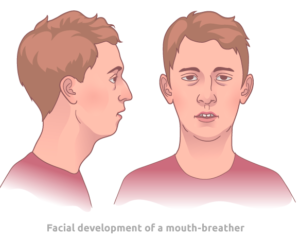
In children, chronic mouth breathing can also cause lifetime impacts like facial deformities. It negatively affects their facial bone structure and makes their faces longer and flatter. This is also known as long face syndrome.
Mouth breathing can sometimes lead to digestive problems

Breathing exclusively through your mouth can also negatively impact the health of your digestive system and lead to a condition called aerophagia. In this condition, the air passes from your stomach to your small intestine and causes problems like intestinal pain, abnormal bloating, and so on.
Summing Up Mouth Breathing In Kids And Adults
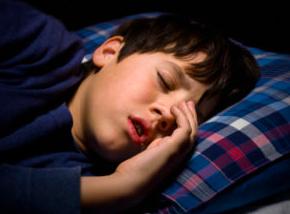
Excessive mouth breathing is not healthy and should be treated before it causes serious long-term health issues. Mouth breathing usually happens due to an obstruction in your nasal passageway, sleep apnea, or nasal structure. Oral habit breaking appliances for kids go a long way in reducing the frequency of habits such as thumb sucking and mouth breathing.
Mouth breathing is usually treated with medication or surgical removal. We highly recommend that you pay a visit to your doctor. They will be able to guide you and suggest the best treatment option after analyzing your condition.
Get In Touch
GROWING SMILES ® Pediatric Dentistry & Orthodontics
Phone: 093193 73963
Address: Converge by UKn, No 78/2, Ground floor, Nallurahalli Main Rd, Whitefield, Bengaluru, Karnataka 560066

